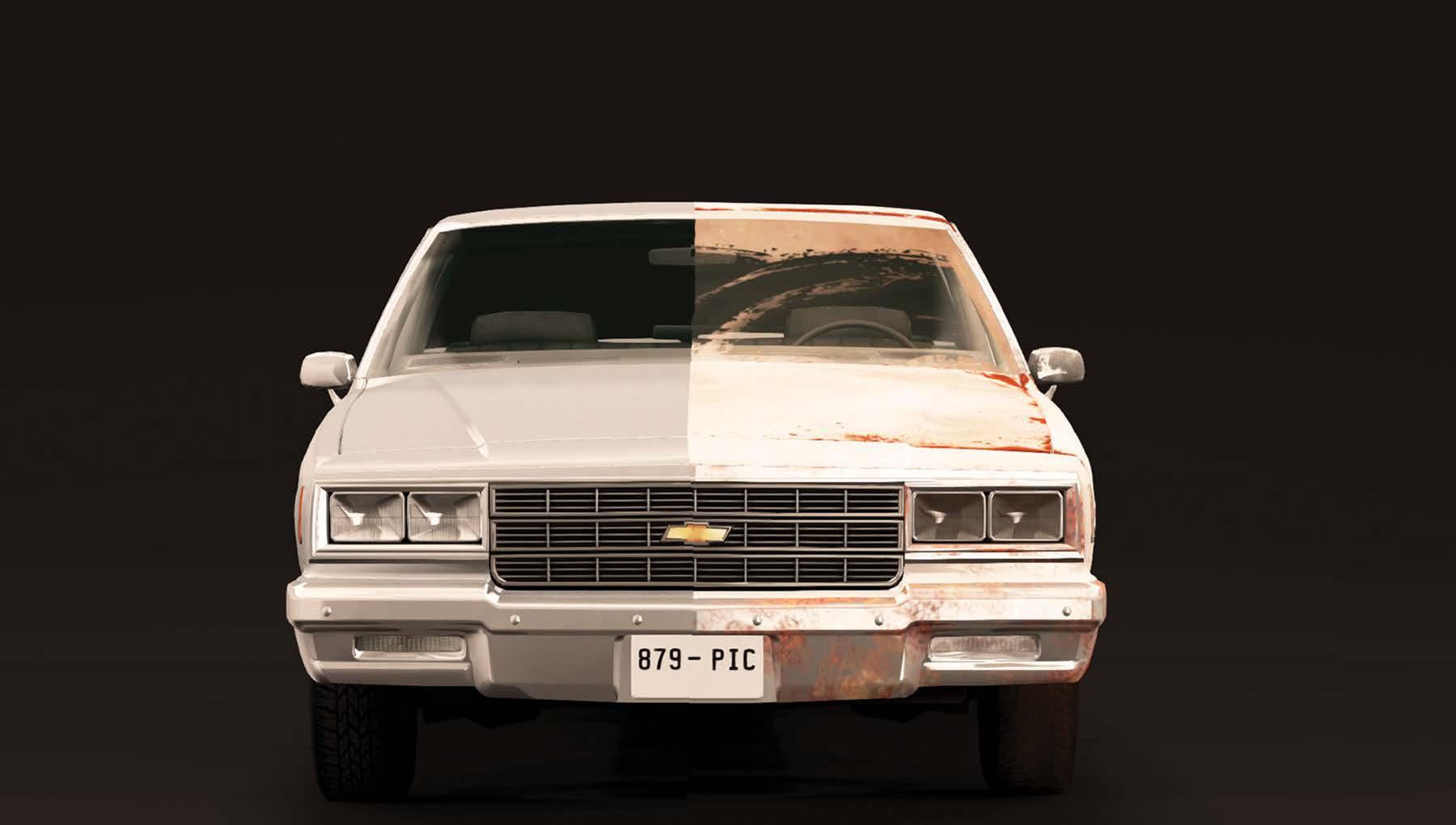
3 minute read
by Elisha-Grace King ’23
from Outcroppings
Pink Barrettes and Patriarchy
by Elisha-Grace King ’23
Advertisement
The nature of my hair is to always wake up with an unruly bedhead. I remember walking into the kitchen for breakfast when I was young to be greeted by a horrified expression on my mother’s face. The only person who could tame the bird’s nest on my head was her. I’d sit at the table eating my bowl of MultiGrain cheerios as my mom braided my hair with expert hands. Strands tugged at the back of my neck and paired with the vibrations of her humming her favorite 90’s love ballad. After several patient (and periodically painful) minutes, I’d be off to school with a kiss goodbye.
With intricate patterns woven into my straight black hair, I carried my head high into school every day. I resembled a tacky Christmas tree, my face glowing with confidence and my head decorated with bows and bright colors. With beaming pride, I’d tell my friends who did my hair. I’d envision being able to braid my own daughter’s straight black hair before school one day, just like my mom. Then, I’d be everything I admired. I’d grow up and be a real woman just like her.
My definition of “real woman” became confused as I matured. In the most confusing times, I was brought back to sitting at the breakfast table as my hair was decorated with ladybug hair clips. My mother and my hair. The sacrifices she made for me to achieve the dream she couldn’t and finish an education. Our talks together in the mornings about my favorite trees I saw on the way to school. I realized that “woman” didn’t refer to a person who braided your hair in the morning but a feeling; the experience of a feeling. Love, pain, sacrifice, and devotion are ingrained into the strands atop my head; not seen but deeply felt. That deep, complex feeling is the word woman to me.
Being able to weave what I feel now and what I grew up with is an ongoing challenge. Most cultures, including the one I was raised in, do not accept the word woman as a feeling as I do. In Tagalog, the native language of my mother and the language of the love ballads she’d sing in the mornings, femininity is prescribed in correspondence with physical traits. Feminine is to long locks as my morning cereal was to milk. They go together.
Sometimes, I daydream of cutting it all off; liberating myself from any ties to expectation or binary. I wonder who I would be without that part of me. If I rejected the definition I grew up with of a perfect daughter. Of a daughter. Would I feel an immediate rush of relief? Or a deep sense of loss? Maybe even that I’ve committed a betrayal. I imagine that it would be similar to when I’d pull out my braids halfway through the school day. An instant release of the tight, aching pain irritating the back of my head all day. However, after brushing it all out, I would miss the feeling it gave me of connection and bright, girly spirit. 30 minutes sitting in a chair before school doesn’t seem so long of a process when you’re now faced with finding harmony between your culture and your thoughts. As I look in the mirror searching for answers, I see my bedhead; I have the responsibility of taming it now. I feel the power of being able to figure it out myself, but I miss the pure moments of the mother-daughter dynamic I experienced as a little girl. The feelings of empowerment and childhood seem to be entangled like complex strands in a braid, decorated with glittery barrettes I’m hesitant to touch.






